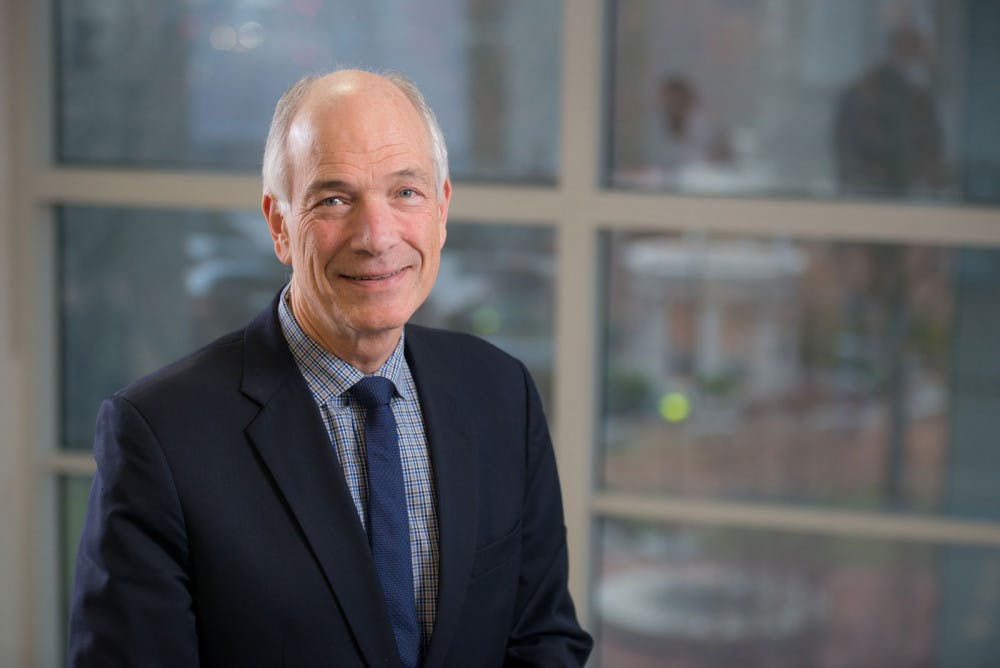In the University’s largest federal grant award in its history, the National Institute on Aging has promised more than $50 million over five years to examine how non-drug Alzheimer’s care can realistically improve quality of life.
This project comes as Alzheimer’s disease and Alzheimer’s-related dementia challenge researchers and caregivers across the nation. Alzheimer’s currently affects 1 in 10 Americans over the age of 65, and the number of people with Alzheimers will increase toward 14 million by 2050, according to the Alzheimer’s Association. The disease is the most common cause of dementia and cannot yet be cured through drug treatment.
The University, in collaboration with Boston-based and Harvard-affiliated Hebrew SeniorLife, will spearhead a national effort to improve care and quality of life by evaluating non-drug care and establishing best practices for Alzheimer’s and dementia patients, according to a University press release.
The $53.4 million project will be co-led by Professor of Health Services, Policy and Practice Vincent Mor, who is based at the School of Public Health, in partnership with Susan Mitchell, a senior scientist at HSL’s aging research center and a professor of medicine at Harvard.
“These kinds of very large, pragmatic trials are pretty new here in America,” Mor said.
A project with this scope promises to redefine how Alzheimer’s and dementia are managed in healthcare settings by empirically assessing how care is delivered and who is capable of delivering it. Through funding and support of up to 40 proposed pilot programs, the grant will help test existing intervention ideas in varying real-world healthcare systems. The team plans to have three or four pilots funded and running as soon as March 2020, Mor said.
The project will investigate whether professionals like nursing aides and doctor’s secretaries can implement the care that best improves quality of life and reduces stress, Mor said. “You are now going to see if the nurse who has been employed by the healthcare system can actually learn how to do the intervention in the way it was originally designed,” he said.
The University and HSL will create a research incubator that will support the pilot trials as they are implemented in medical centers across the nation.
The incubator, called the NIA Imbedded Pragmatic AD/ADRD Clinical Trials (IMPACT) Collaboratory, will consist of eight groups — called corps — that will provide support to researchers behind the pilots. Each group will have dedicated experts who provide assistance in areas ranging from medical ethics to statistics, the measurement of outcomes and healthcare systems. One group will facilitate “marriage making” between research projects and healthcare systems, Mor said.
Mitchell and Mor have collaborated on other projects to improve care for dementia, and their shared effort follows a 40-year tradition of partnership between the University and Hebrew SeniorLife, including 15 years of collaboration between Mitchell and Mor.
The pilots, which have yet to be selected, will likely have been tested previously under controlled research settings. The team hopes to fund both new projects and those which have been tested in the past, as well as projects Mor called “hybrids,” which may have seen limited success in research but could have great potential if established in a real healthcare setting.
The investigators behind the pilots will ideally be both academic researchers and healthcare professionals already integrated into care delivery systems, Mor said in the press release. After the first five years and the first cohort of pilots, Mor hopes that the project will receive further funding. If the research is successful and healthcare systems truly reorganize around its principles, then Mor will deem the effort a success.
“This grant will harness the collective power of leading-edge scholars at the University, Hebrew SeniorLife and across the nation to advance care and make a positive real-world impact on the individuals most directly affected by these illnesses,” said University President Christina Paxson P’19 in the press release.
“I’m hoping that we will learn lessons that people like me, and particularly my junior colleagues, will be able to implement more broadly as we try to make a difference in how care is being delivered to people living with dementia,” Mor said.

ADVERTISEMENT
More




